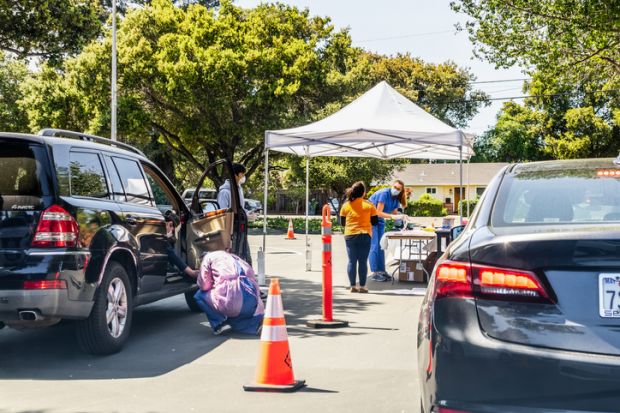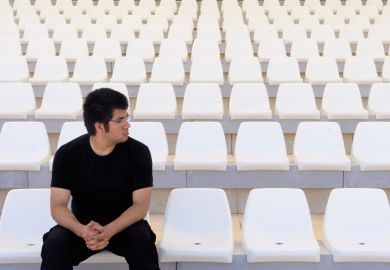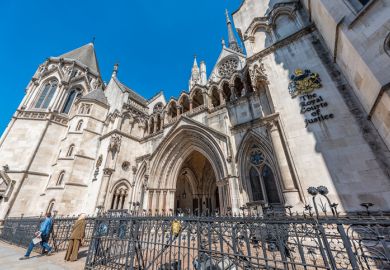Leading US university presidents have challenged suggestions that they acted irresponsibly by resuming in-person classes this autumn, calling coronavirus outbreaks limited and student community needs underappreciated.
Heavy criticism of US colleges has arisen just a few weeks into the semester, with more than 100 institutions reporting at least 100 Covid cases, some campuses driving the spread of infections in their communities, and several already pulling back from in-person instruction.
Such problems are real, a group of 11 university presidents told an annual media forum arranged by Arizona State University. However, several said, reports often failed to capture the degree to which the cases stem from rare problems at single locations – such as fraternities or local bars – that have quickly been addressed.
“I don’t think the coverage by the media has been accurate or helpful,” said one president, David Leebron of Rice University in Houston, Texas.
ASU’s president, Michael Crow, described aggressive university efforts to shut down bars in the Phoenix area that violated social distancing rules, to the point of taking photos to provide necessary evidence.
At the same time, university presidents said, critics of reopenings were paying insufficient attention to the majority of students who wanted their online classes within a campus experience for reasons that include their mental health and their need for quiet places with reliable computer connections.
Since the pandemic arose in the spring semester, said Marlene Tromp, president of Idaho’s Boise State University, rates of anxiety, depression, suicidality and psychosis have risen by as much as 400 per cent among people aged 18 to 26.
“This is because our students really wanted the opportunity to connect, to engage,” she said. “We wrenched them out of the environment where they were beginning to build their more adult lives.”
Historically black Howard University in Washington DC, with almost half of its students classified as low-income, felt an obligation to help them with housing and food security challenges, said its president, Wayne Frederick.
Mr Leebron said he was especially bothered by widespread suggestions that universities should have recognised that their students could not be trusted to observe basic rules such as wearing face masks and avoiding large gatherings.
Students already are deemed responsible for obeying rules in areas that include cheating, sexual assault and alcohol use, and preventing the spread of Covid-19 should not be treated any differently, Mr Leebron said.
“We hold our students accountable in a lot of different contexts,” he said, “and we hold them increasingly accountable in those contexts.”
One of the more controversial recent moves in that regard involves Northeastern University in Boston, which evicted 11 freshers over pandemic-related violations and refused to refund their tuition payments, which run to about $36,500 (£28,000) apiece.
Several presidents at the ASU event acknowledged that reopening campuses to students, even while avoiding in-person instruction, remained a tough call.
“It was never going to be perfect, but it was the right move to do, with all the safeguards,” said Christopher Howard, president of Pennsylvania’s Robert Morris University. So far, he said, “We’re weathering the storm.”
The possibility of asymptomatic virus spread among young adults remained high, conceded Laurie Leshin, the president of Worcester Polytechnic Institute in Massachusetts. “It’s way too soon for anybody to gloat; it’s way too soon for any of us to declare success, and way too soon to point fingers,” Professor Leshin said.
Register to continue
Why register?
- Registration is free and only takes a moment
- Once registered, you can read 3 articles a month
- Sign up for our newsletter
Subscribe
Or subscribe for unlimited access to:
- Unlimited access to news, views, insights & reviews
- Digital editions
- Digital access to THE’s university and college rankings analysis
Already registered or a current subscriber? Login








